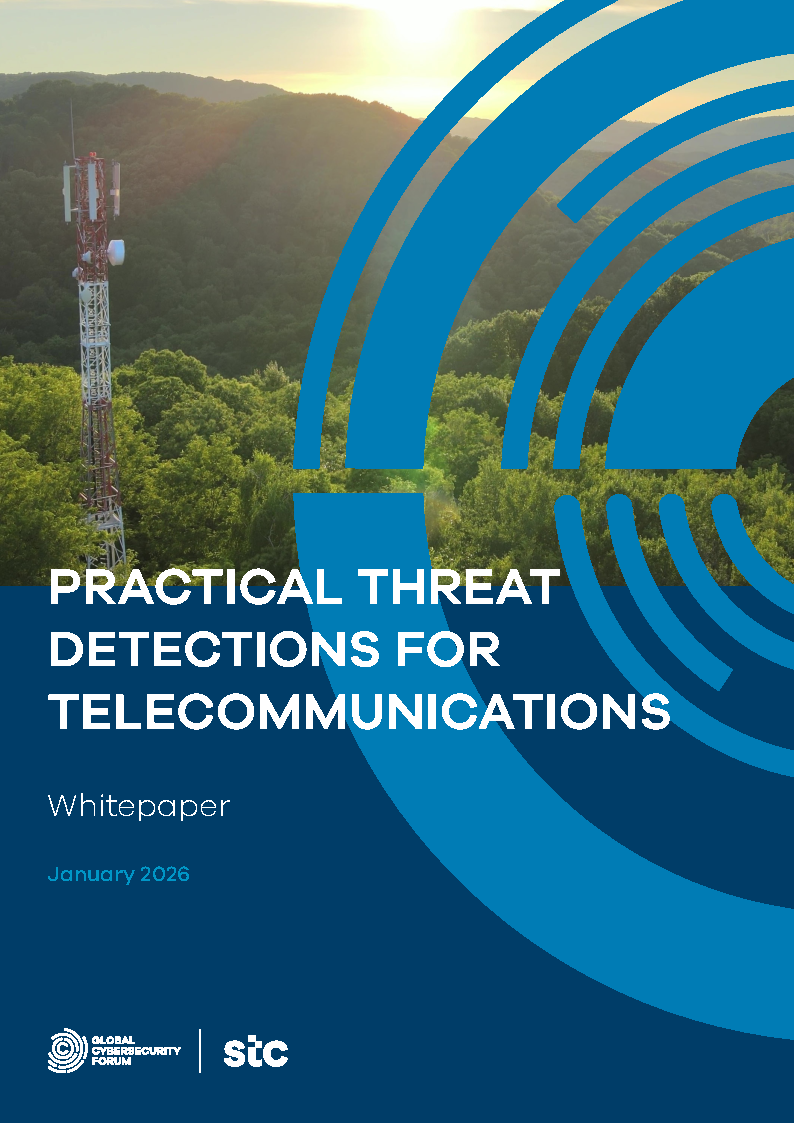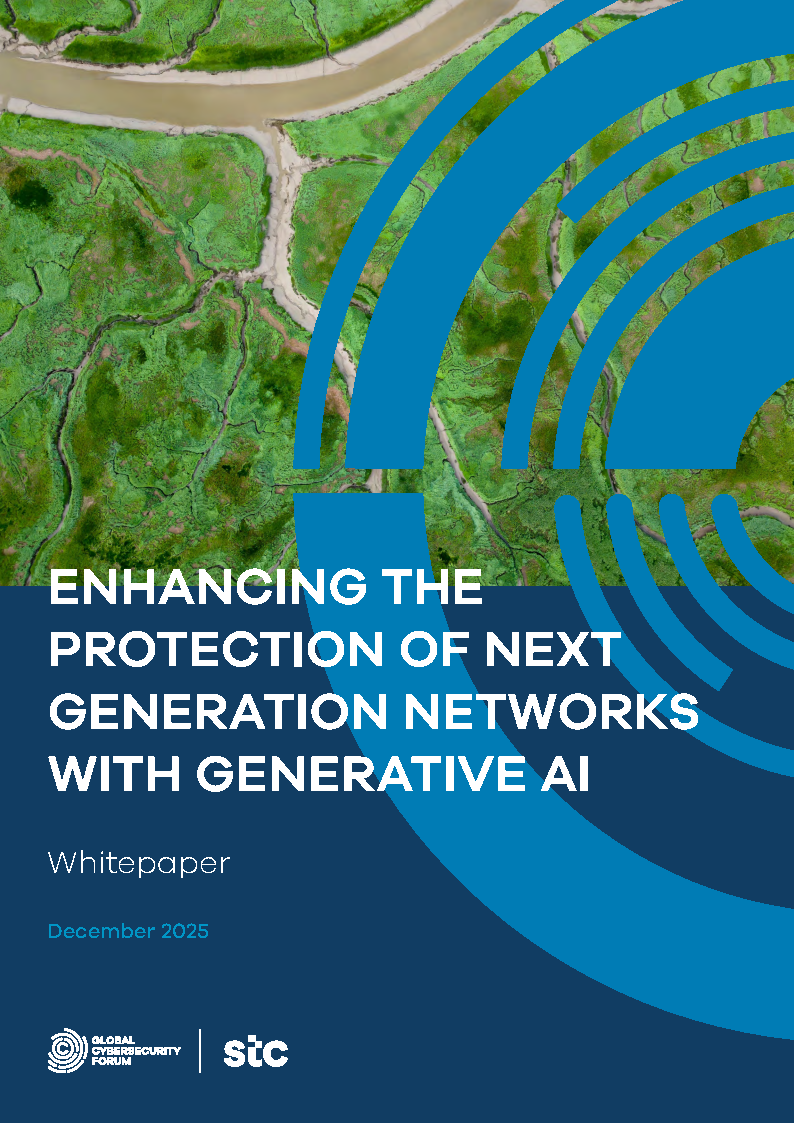- Home/
- Press & Media/
- Securing infrastructure, enabling growth: global leade.../
Securing infrastructure, enabling growth: global leaders at GCF 2025 call for greater momentum on collaborative action in Cyberspace
.png&w=3840&q=75)
Riyadh, 4 October 2025: Global leaders and decision-makers convened at the GCF Annual Meeting 2025 in Riyadh, 1-2 October, calling for greater international collaboration on shared challenges and priorities in Cyberspace, in a time of increasingly complex socioeconomic and geopolitical dynamics.
“We must act together to ensure Cyberspace serves the common good – by investing in people, building skills and fostering inclusion,” said H.E. Secretary-General of the United Nations, António Guterres, addressing participants.
H.E. José Manuel Barroso, President of the European Commission (2004–2014) echoed this, underscoring the importance of stronger international collaboration in cybersecurity: “It would be nice to have, in cybersecurity, as in other matters, more cooperation.”
The fifth edition of the Annual Meeting marked a new phase of deepened collaboration amongst GCF’s global community, in its mission to strengthen the safety and resilience of Cyberspace for all. While consensus on key issues remains a challenge at the international level, speakers were optimistic about the potential for concrete progress around common goals and challenges.
“If we focus on those aspirations, we’re more likely to find common ground… And by focusing on that we are therefore more likely to have the mobilization of the collaboration that's required,” said Chris Inglis, National Cyber Director, United States (2021 – 2023).
GCF advances dialogue and action across geopolitical, socioeconomic, technical, and human dimensions of cybersecurity – from increasing understanding of cyber economics and human behavior in Cyberspace to the protection of critical infrastructure and the wellbeing of children online.
“In Cyberspace I believe all agree on the protection of children against sexual abuse, on the protections of schools and hospitals,” said H.E. Kolinda Grabar-Kitarović, President of Croatia (2015 – 2020), suggesting that “coalitions of the willing” can spearhead progress around these and other shared issues.
High-profile speakers and delegates, including leaders from government, the private sector, and academia, gathered for two days of action-oriented dialogue under the theme “Scaling Cohesive Advancement in Cyberspace.” As well as calling for a fresh approach to multilateralism, speakers highlighted the importance of keeping pace with a rapidly evolving cyber landscape – including challenges and opportunities in a new era of AI, automation, and quantum computing.
“If your infrastructure is being increasingly dominated by interconnectivity, use of AI, software, all of that building in for efficiency is also building in for vulnerabilities,” said Heidi Crebo-Rediker, Senior Fellow for Geoeconomics, Council on Foreign Relations, proposing that the public and private sectors work “very, very closely together” to ensure resilience.
Attention also turned to the economic dimension of Cyberspace. Members of the Executive Committee of the Centre for Cyber Economics (CCE) – a collaboration between the World Economic Forum and GCF aimed at equipping decision-makers to unlock the full value of cybersecurity – emphasized that cybersecurity must be viewed as an economic imperative. Dr. Stéphane Straub, Chief Economist for Infrastructure at the World Bank noted that by “moving from the bottom 25% to the top 25%” in terms of cybersecurity preparedness, a country could increase its GDP per capita by 1.5%.
As a permanent platform, GCF is facilitating multistakeholder, global partnerships aimed at strengthening cybersecurity worldwide. This year’s event saw the announcement of new projects and programs building on earlier efforts to address critical challenges and opportunities in Cyberspace – including the two global initiatives instated by H.R.H. Prince Mohammed bin Salman bin Abdulaziz Al-Saud, Crown Prince and Prime Minister of Saudi Arabia, Child Protection in Cyberspace (CPC) and Women Empowerment in Cybersecurity (WEC).
“[This year’s] theme underscores a new phase of deepened collaboration, and our intent to exponentially expand the transformative impact that the GCF has already achieved across its growing range of activities,” said H.E. Majed bin Mohammed Al-Mazyed, Governor of Saudi Arabia’s National Cybersecurity Authority, speaking on behalf of the GCF Board of Trustees.
At the Annual Meeting 2025, advancements in key areas included:
Launch of the Global Initiative for Capacity Building in Cyberspace, to be implemented by Saudi Arabia’s National Cybersecurity Authority (NCA), Saudi Information Technology Company (SITE), and GCF, in collaboration with several UN agencies and international organizations.
First in-person meeting of the Centre for Cyber Economics’ (CCE) Executive Committee, a collaboration between World Economic Forum and GCF.
Launch of the CPC Index developed with DQ Institute, a unified global standard for nations to track progress toward a global child cyber risks reduction of 15% in 5 years.
As part of the Child Protection in Cyberspace (CPC) initiative, release of an evidence review report on risks facing children in online gaming with WeProtect Global Alliance.
UNICEF revealed outcomes of the joint program under the CPC initiative, with 30 national child helplines trained on online harms with Child Helpline International.
Outcomes of the joint program with ITU, reaching 200k direct beneficiaries globally and leading to the localization of Child Online Protection guidelines in 25 languages.
An MoU between GCF and UN Women to foster knowledge sharing in support of the Women Empowerment in Cybersecurity (WEC) initiative’s goals.
Publication of “Bridging the Gender Gap in Cybersecurity,” with Duke University, a research study on women’s participation in the cyber workforce across Latin America.
The United States Telecommunications Training Institute (USTTI) hosted future women cyber leaders from 20 countries to the third session of its joint global training program with GCF.
Formation of the new “Securing the Future Skies” Knowledge Community, led by Riyadh Air, to address the growing cyber threats facing aviation.
Launch of the first GCF Impact Network on the Protection of Critical Infrastructure, where participants agreed to work to accelerate implementation of the Digital Emblem Project by the International Committee of the Red Cross (ICRC) as a first step.
Hosting of the first EU-GCC Cyber Diplomacy 1.5 Dialogue, supported by EU Cyber Direct.


